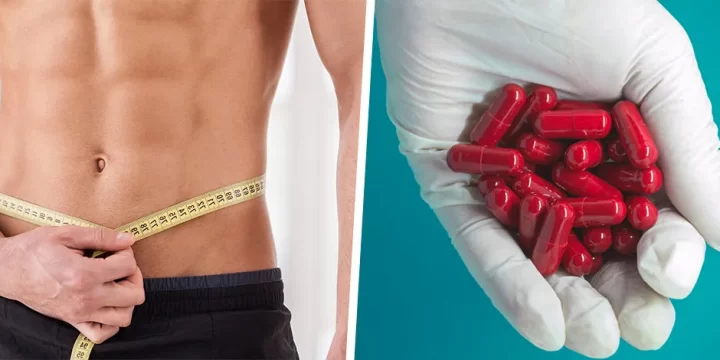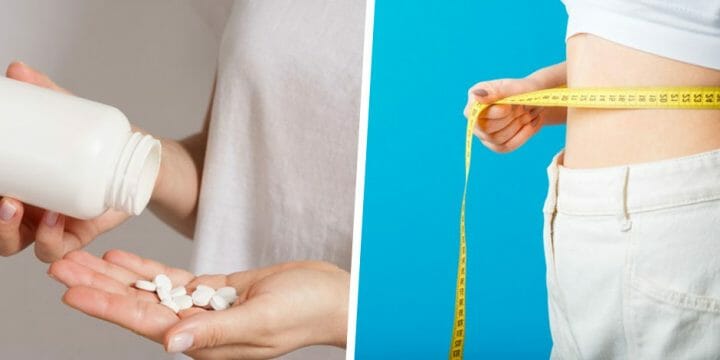Testosterone Propionate is one of the more commonly used anabolic steroids, and millions of people have seen benefits for a wide range of health issues.
But along with Testosterone Enanthate, it’s also one of the most commonly abused drugs in the bodybuilding and performance sports scene.
As a coach, I have encountered many people who are dealing with serious issues from taking performance enhancers.
So I decided to spend some time with a medical doctor to get a full picture of what this drug actually does.
Quick Summary
- Testosterone Propionate is a fast-acting anabolic steroid used for testosterone replacement therapy and popular among bodybuilders for rapid muscle growth.
- It rapidly increases testosterone levels post-injection, enhancing muscle building and fat burning, but can also affect mood and mental stamina.
- A decline in testosterone production from age 30 can largely be compensated for with an appropriate diet, workout routine, and natural supplements, as noted by WebMD.
- Personally, I believe natural methods and lifestyle changes are safer alternatives for managing testosterone levels than resorting to anabolic steroids.
How Fast Does Testosterone Propionate Provide Results?
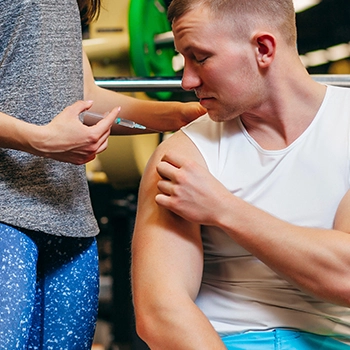
Testosterone Propionate can start providing results within about three days, and it’s a lot faster-acting than most other anabolic steroid drugs, according to the Comprehensive Medicinal Chemistry II [1].
Patients can notice increased testosterone levels within days after the first injection.
This rapid effect often attracts bodybuilders and athletes to use it without medical guidance. However, improper dosage and timing can lead to severe side effects.
The other interesting thing that my doctor mentioned is that because this drug peaks quickly and then drops quickly as well, it’s not suitable for long-term hormone treatments [2].
And that is another common error that athletes make, as they often only look for fast results without being fully aware of how much damage they could be doing.
What Does Testosterone Propionate Do?
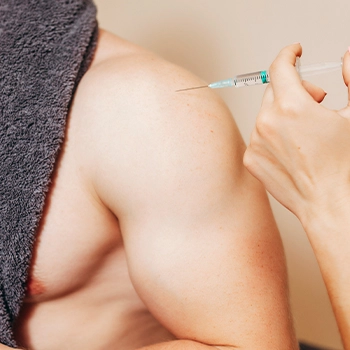
From my experience as a coach, I've seen Testosterone Propionate rapidly increase testosterone levels post-injection. Its chemical similarity to natural hormones allows it to effectively bind to the same receptors, a fact I've noted in the progress of my clients.
According to the study published in PubMed, the effect that athletes and bodybuilders look for is how these testosterone esters impact muscles and fat storage [3].
Testosterone Propionate enhances muscle building and fat burning with the same physical effort, a sought-after effect that may have significant health consequences.
Additionally, sudden testosterone increases can affect mood and mental stamina.
On the one hand, it can reduce stress, but with frequent injections, it can cause mood swings and even aggressive behavior, sometimes referred to as roid rage [4].
What Are The Side Effects?

Throughout my coaching career, I've seen that using Testosterone Propionate and other steroids can lead to a range of side effects, not just in muscle mass enhancement. These observations come from closely monitoring the health and progress of my clients.
There are certain indicators that doctors carefully monitor when putting a patient through hormone therapy [5].
The most important ones are the following:
- High Amount Of Calcium In The Blood
- High Blood Pressure
- Enlarged Prostate
- Cardiac issues
- Low Energy
- Dizziness
- Nausea
- Vomiting
- Sleep Apnea
- Water Retention
- Redness Of Face And Neck
The side effects of Testosterone Propionate range from mild to severe, potentially causing lasting organ damage.
Self-administration is particularly risky as side effects often go unchecked, leading to significant harm before symptoms are even noticed.
Are There Alternatives To Testosterone Replacement Therapy?

Yes, there are excellent alternatives to testosterone replacement therapy. For those considering or curious about TRT, a comprehensive Fountain TRT Review can provide valuable insights.
While there are very good reasons for having a doctor inject Testosterone Propionate or other steroids, most athletes should try other methods for dealing with low testosterone.
First of all, you should make sure you achieve a well-balanced diet along with a regular exercise routine [6].
“If you’re overweight, exercise can improve your testosterone levels by helping you shed pounds.”
- Stuart Bergman, MD at WebMD.com
But there are also some natural supplements that you can take as an alternative to Testosterone Cypionate, Testosterone Enanthate or Propionate.
Natural testosterone boosters, comprising minerals, vitamins, and herbs, stimulate the body's own testosterone production.
Deciding to use injectable testosterone for aesthetic or athletic reasons is ill-advised; it should be a medically guided decision for treating low testosterone.
How Do People Plan A Testosterone Propionate Cycle?
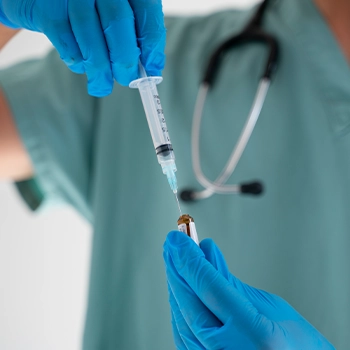
Proper Testosterone Propionate dosing is based on initial testosterone levels and observed improvements, necessitating careful planning and medical oversight.
However, many athletes rely on generic online guidelines, often neglecting health monitoring and irresponsibly increasing dosages.
Such practices, as my doctor emphasized, are highly risky with testosterone ester injections.
Beyond the immediate effects, understanding the long-term implications of testosterone suppression and the strategies for effective post-cycle therapy (PCT) is essential for maintaining hormonal balance and health post-cycle.
Who Shouldn’t Take It?
In my years of coaching, I've advised clients with liver, kidney issues, or an enlarged prostate against taking Testosterone Propionate. This caution is based on witnessing the adverse effects it can have on such conditions.
And people who have issues with blood pressure should also be very cautious about taking testosterone drugs.
In such cases, it’s vital to talk to a doctor about possible alternative treatments.
They may still prescribe hormone therapy, but in those cases, there will be a lot more careful monitoring of the underlying conditions to ensure the drug doesn’t do more harm than good.
The other thing I would say is that men with low testosterone that isn’t at dangerously low levels shouldn’t immediately resort to testosterone treatments.
While a drop in testosterone production is perfectly normal from the age of 30, most of that can be made up with the right diet, workout routine, and natural supplements, according to WebMD [7].
And finally, I would say that healthy athletes and bodybuilders should never use Testosterone Propionate due to its adverse effects.
FAQs
How Long Does Propionate Take To Work?
It can take a few weeks for Propionate to work fully. Even though taking Testosterone Propionate will cause a peak in testosterone after a few days, it may take weeks for it to trigger the different receptors in the body.
How Much Testosterone Propionate Should You Take A Week?
Most patients should take 25-50 mg of Testosterone Propionate per week, but the exact amount has to be calculated and administered by a doctor. You should never guess a dosage and self-administer this drug or other testosterone esters due to the serious health risks.
References:
- https://www.sciencedirect.com/topics/chemistry/testosterone-propionate
- https://www.sciencedirect.com/topics/nursing-and-health-professions/testosterone-propionate
- https://pubmed.ncbi.nlm.nih.gov/9024227/
- https://www.merriam-webster.com/dictionary/roid%20rage
- https://www.webmd.com/drugs/2/index
- https://www.webmd.com/men/features/exercise-and-testosterone
- https://www.webmd.com/men/features/low-testosterone-explained-how-do-you-know-when-levels-are-too-low
About The Author
You May Also Like
